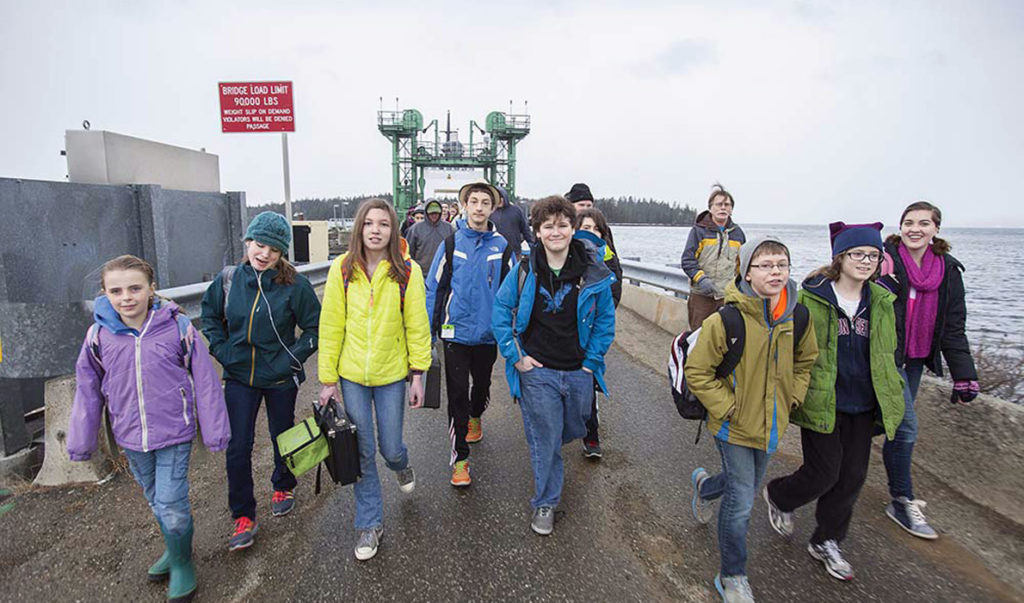A good friend recently introduced me to the work of writer Annie Dillard. She is now an even better friend.
In one of Dillard’s short stories, she writes some of the most beautiful reflections on memory I’ve encountered. One passage in particular stuck with me. Writing as a woman in her mid-30s, taking her daughter to their camp for the last weekend of summer, she reflects, “If I wish to, and I do not, I can have never-to-be-repeated moments, however dreadful, anywhere, anytime, simply by calling that category to mind.”
Can we deliberately build memories? She struggles with her own intuition that the older we get, the easier it is to control what memories will stay with us, through simple categorization.
After reading this, I entered a room at our offices filled with a dozen or so Rockland ninth-graders. Perhaps I could create one of these never-to-be-repeated, memorable moments. But this would be a big lift. Most of the students were probably 14, and I suspect they are entering a phase in life when they realize they have the ability to create their own memories. Still, I wanted to be a part of a memory for at least one of them.
I entered without invitation, unannounced. They were taking a break from a class trip to see a movie on climate change at the Strand Theater. Let’s just say they weren’t eager to be engaged by a stranger. But they were in my building, so I went for it.
Speaking of their futures, the girls all said they wanted to leave Rockland, as did some of the boys. Why? The same reason most of us wanted to leave home. The sentiment was, “Why would we stay? What for?”
What I think they meant, and what I remember at that age, was feeling stuck. By 14, these kids have family and friends who already have put them in categories and predicted their future successes and failures they may find impossible to shake, even if they leave and return. These categories are sticky, and hard to shake over a lifetime. They make it hard to want to come home.
I asked for a show of hands of those with family members who fished. Some 85 percent raised their hands. Did they think lobstering would be there for them, and if so, for how long? They gave it 30-40 years.
The discussion turned to the future. What types of jobs would be available on the coast? We talked about the service sector, fishing, transportation, health care, and other elements of an economy based on aging seasonal residents and tourists. We also talked about the kinds of skills needed for self-employment, and about some of the cool small businesses here that serve a global clientele.
It became more interesting for all of us when talk turned to the personal. I shared how I landed in Rockland after having lived most recently in Toronto and Yunnan, China. I could see the thought bubbles: “You mean you chose Rockland?” I also talked about the backgrounds of our staff, about how many are from the Maine coast, but also from around the country.
I talked about the experience of living abroad, and how at their age I saw the prospect of living anywhere else as a dream, a series of never-to-be-repeated moments. And for the most part, it was. But it wasn’t always easy.
I had been traveling for three days with members of the Communist Party and the head of the Center for Biodiversity and Indigenous Knowledge when my wife and I finally arrived at the village in China we hoped would be our home. This was the land of the Baizu people, who are related to minority groups throughout Southeast Asia.
We would sit in this village for what seemed like days, negotiating the possibility that I might live there to conduct PhD research. The smell of unwashed coal burning in the morning still sticks to me, it seems, as does the memory.
I wish many once-in-a-lifetime experiences for the Rockland ninth graders, for the ways that their lives can change if they leave, so they can break free of the categories they find themselves in, and so they can return and contribute in unexpected ways to their community. They will need help and encouragement for this to happen.
I hope I introduced to them a different way of moving through life. Perhaps it will stay with just one of them. This would bring me great happiness.
Rob Snyder is president of the Island Institute, publisher of The Working Waterfront. Follow Rob on Twitter @ProOutsider.





